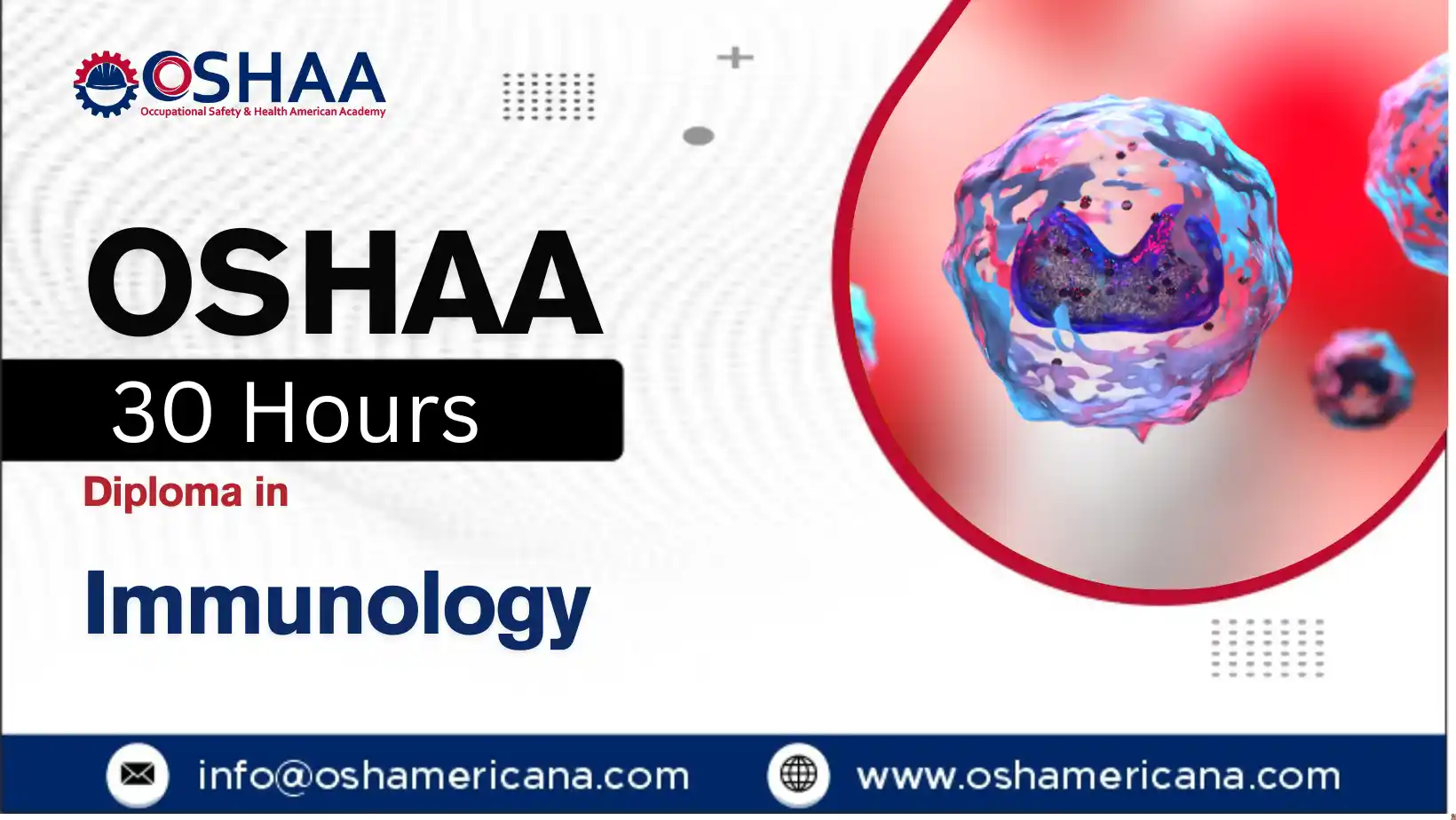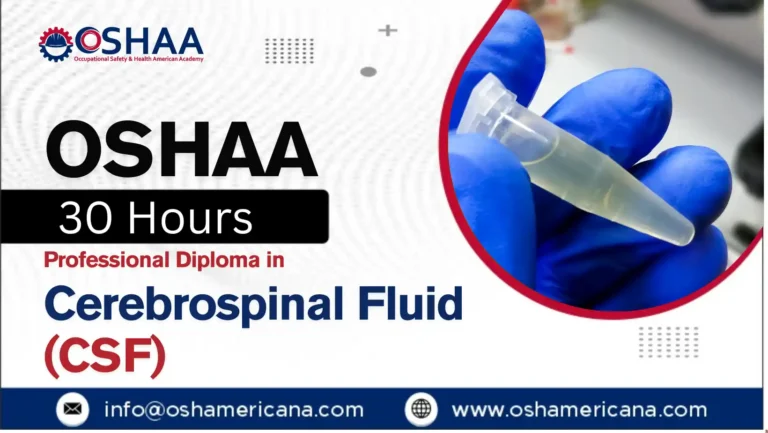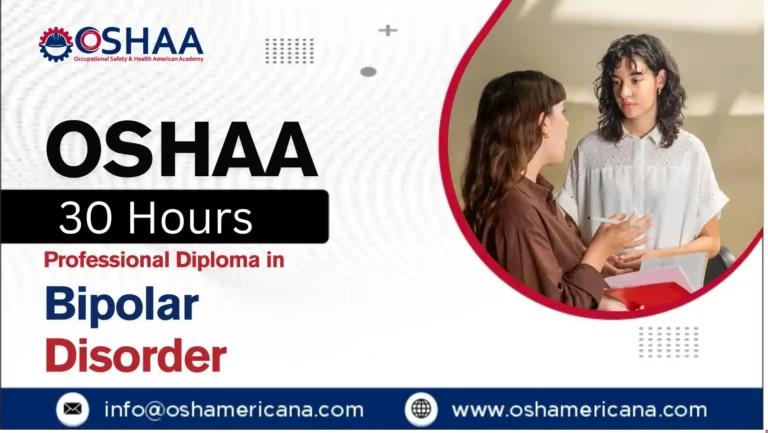Unlock Expert Knowledge in Immunology with Diploma
The OSHAA 30-Hours Diploma in Immunology is a professionally designed programme offering participants a comprehensive foundation in the principles and applications of immunology. With growing relevance in public health, diagnostics, vaccine development, and clinical research, the field of immunology has become indispensable in modern science and medicine. This diploma caters to those seeking in-depth knowledge and practical insights into the immune system’s complexities, equipping them with the skills to engage with the discipline confidently and competently.
Immunology is the branch of biomedical science that explores the structure and function of the immune system, the body’s natural defence mechanism against disease. The OSHAA Diploma in Immunology is structured to provide participants with a clear understanding of immune responses, immunological disorders, diagnostic techniques, and emerging trends in immunotherapy.
This diploma is ideal for participants with a background or interest in biological sciences, healthcare, laboratory work, or medical research. It also benefits those preparing for further academic study in immunology, biomedicine, or public health. The course is well-suited to individuals seeking to enhance their understanding of immunological principles for professional development or personal enrichment.
The OSHAA 30-Hours Diploma in Immunology stands as a relevant and timely programme in today’s health-conscious world. By bridging foundational science with modern clinical application, it prepares participants to engage with one of the most impactful areas in medicine and biology. For anyone with a keen interest in understanding how the body defends itself and how this knowledge translates into diagnostics, therapy, and innovation, this diploma offers an essential and enriching learning experience.
OSHAA 30-Hours Diploma in Immunology
Study Units
Learning Outcomes
Foundations of Immunology and Immune System Overview (3 Hours)
- Understand the historical development and scope of immunology as a scientific field
- Identify the basic functions and importance of the immune system in human health
- Distinguish between innate and adaptive immunity at an introductory level
- Recognise the significance of immunological balance and homeostasis
Cells and Organs of the Immune System (3 Hours)
- Describe the primary and secondary lymphoid organs and their roles
- Identify key immune cells such as lymphocytes, macrophages, and dendritic cells
- Explain the development and maturation processes of immune cells
- Understand the interaction between immune cells and lymphoid structures
Innate Immunity: First Line of Defence (5 Hours)
- Explain the components and mechanisms of the innate immune response
- Understand the role of physical, chemical, and cellular barriers in early defence
- Identify pattern recognition receptors and their function in pathogen detection
- Describe the role of inflammation and the complement system in innate immunity
- Analyse the limitations and non-specific nature of the innate immune system
Adaptive Immunity: T-Cells, B-Cells, and Antibodies (4 Hours)
- Differentiate between humoral and cell-mediated immune responses
- Understand the roles of T-lymphocytes and B-lymphocytes in adaptive immunity
- Explain the process of clonal selection and immune memory formation
- Describe how antibodies function in pathogen neutralisation and clearance
Antigen Recognition and Immunoglobulin Structure (6 Hours)
- Define antigens and epitopes and their significance in immune recognition
- Understand the structure and types of immunoglobulins (IgG, IgA, IgM, IgE, IgD)
- Describe the mechanisms of antigen-antibody binding and specificity
- Explore the genetic basis of antibody diversity and V(D)J recombination
- Analyse the role of affinity maturation and class switching in adaptive responses
- Evaluate laboratory methods used to study antigen-antibody interactions
Major Histocompatibility Complex and Antigen Presentation (3 Hours)
- Understand the structure and function of MHC class I and II molecules
- Explain the pathways of antigen processing and presentation
- Describe the role of MHC in immune recognition and transplant compatibility
- Discuss the implications of MHC polymorphism in disease susceptibility
Immunological Disorders: Autoimmunity and Hypersensitivity (3 Hours)
- Identify key mechanisms and examples of autoimmune diseases
- Understand the classification and mechanisms of hypersensitivity reactions
- Describe immune tolerance and the breakdown leading to autoimmunity
- Analyse case examples of immunological disorders in clinical context
Immunological Techniques and Diagnostic Applications (3 Hours)
- Recognise common laboratory techniques such as ELISA, flow cytometry, and Western blot
- Understand how immunological assays are used in disease diagnosis and monitoring
- Explain the principles behind antigen-antibody detection methods
- Apply knowledge of immunological tools to interpret diagnostic results
Course Benefits – OSHAA 30-Hours Diploma in Immunology
- Provides a strong foundation in immunological science, essential for roles in healthcare, biomedical research, and diagnostics
- Enhances understanding of immune mechanisms relevant to infectious diseases, vaccines, cancer, and autoimmune conditions
- Equips participants with knowledge of advanced immunological techniques used in laboratories and clinical settings
- Supports career development in medical, pharmaceutical, public health, and life science sectors
- Offers valuable insights into current developments in immunotherapy and personalised medicine
- Strengthens analytical skills through applied learning and real-world case scenarios
- Facilitates progression to further specialised study or professional certification in immunology and related fields
- Increases scientific literacy in a globally relevant discipline, supporting evidence-based decision-making
- Enables participants to interpret immunological data and reports confidently in academic or clinical contexts
- Delivered in a flexible learning format that accommodates professional and academic commitments
This course is designed for participants who have a keen interest in understanding the human immune system and its role in health and disease. It is particularly suitable for:
- Participants working in healthcare, medical laboratories, or biomedical research who wish to deepen their knowledge of immunological principles
- Those pursuing or planning to pursue careers in medicine, nursing, pharmacy, biotechnology, or life sciences
- Individuals involved in public health, epidemiology, or disease prevention programmes
- Professionals seeking to enhance their understanding of diagnostics, vaccine development, or immunotherapy
- Participants preparing for advanced studies in immunology, microbiology, or related scientific disciplines
- Anyone with a scientific background looking to expand their expertise in one of the most critical areas of modern medical science
The course accommodates both experienced professionals and those new to the field, providing a structured and accessible introduction to core immunological concepts.







